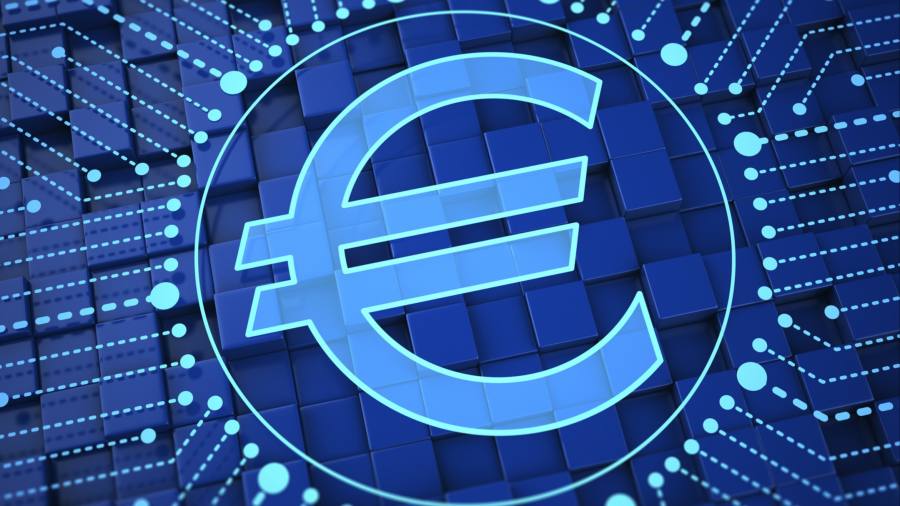Receive free Digital currencies updates
We’ll send you a myFT Daily Digest email rounding up the latest Digital currencies news every morning.
The writer is European Commissioner for financial services, financial stability and Capital Markets Union
During the Covid pandemic, I returned to Belgium from Ireland only to discover that I had left my wallet behind. After the usual panic, I realised that I wouldn’t have any trouble buying groceries or making other payments. I didn’t have cash and I didn’t have my credit or debit cards — but I did have the digital wallet on my smartphone.
Everyday finance has gone digital in just a few years. It’s been a gradual yet profound evolution, accelerated by the pandemic. Forget your wallet, like I did? Use your smartphone or your smartwatch. Splitting a bill? Scan a QR code on a friend’s phone to pay them back. Shopping online? Choose from myriad different options to pay.
But while we make payments using our digital wallets, what we don’t have yet is a digital form of cash. That means something that can be used just as cash is today: legal tender, that can be accepted everywhere, and that can be exchanged one-for-one with physical cash.
There are various forms of crypto: decentralised cryptocurrencies, like bitcoin, or so-called stablecoins, like tether, with a value usually tied to the US dollar. But the past year has clearly demonstrated that crypto is volatile and, unlike euro cash or a digital euro, is not backed by a central bank.
Central banks worldwide, including the European Central Bank which is investigating a possible digital euro, are looking into issuing their own digital currencies. They’re asking questions such as how to make them work, what they could be used for, how to protect people’s privacy and how to make sure monetary policy and financial stability are maintained.
Alongside this, the European Commission will take two key decisions this week. First, a proposal on the legal tender of cash. We’re safeguarding cash as an accepted form of payment. But we also want to offer people an extra choice. So second, we will propose a law to allow the ECB to issue a digital euro, if it decides that would be worthwhile and workable. The digital euro would be a complement to cash, not a replacement.
Like the physical euro, the digital euro could be used anywhere in the eurozone. It would have a similar function to cash — providing access to a reliable and easily accessible form of payment, but digitally. So, first, it would ensure that the euro continues to play a key role in our lives.
Second, a digital euro could support financial inclusion. People without bank accounts or other vulnerable groups rely heavily on cash, which can put them at risk as cash is used less. The digital euro would give everyone a digital option to pay — and it could even be used without a bank account.
Third, a digital single currency could support innovation. Europe’s current payment systems are national or international — we don’t have truly European options, and are overly reliant on companies such as Visa, Mastercard, or PayPal.
Having a new way to pay throughout the eurozone would definitely help consumers. But it would also help European financial service providers, allowing them to expand payment solutions across the single market. And, as existing payment options would continue to be available, it wouldn’t change the role of commercial banks.
I recognise that some have concerns on central bank digital currencies, especially around privacy. But the digital euro is not a Big Brother project. Data protection would be embedded in the digital euro by design. When paying, you would give the same information to your bank as when using your card. If you use it offline, for instance, for person-to-person payments, you wouldn’t give more information than you do when withdrawing money at a cash machine.
Of course, many issues surrounding a possible digital euro are still to be resolved. The next stage of the law-making process will be amendments by the European parliament and EU member states. I hope they will ask more questions and engage with citizens to address their potential concerns.
But, fundamentally, we need to be prepared to act to keep access to public money in a digital world. If we didn’t make this proposal, then we could be found wanting.
Acting now can help to modernise payments, while protecting consumers’ privacy and allowing those who so wish to continue using cash. If other parts of the world introduce their own digital currencies, as many seem likely to do, we must maintain the euro’s importance at the international level. And in doing we can help to safeguard the stability of the monetary and financial system for future generations.
Read the full article here




